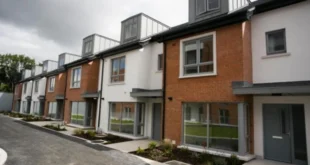Ireland’s hospitality sector is set to receive a long-anticipated boost, as the government has agreed to include a Value Added Tax (VAT) reduction in next year’s national Budget. The measure, part of Tuesday’s €9.4 billion Budget package, is designed to provide relief to restaurants, cafés, and other service-based businesses—but it won’t take effect until mid-2026.
VAT Reduction Details
Under the plan, the VAT rate for qualifying hospitality businesses will drop from 13.5% to 9% starting in July 2026. The government hopes the measure will ease financial pressures on smaller operators struggling with inflation, higher wage costs, and supply chain challenges. While the cut is being welcomed by much of the industry, hotels will be excluded from the scheme—a decision that may spark debate among larger tourism stakeholders.
Interestingly, the measure will extend to large franchise chains, meaning restaurants such as McDonald’s and other multinational operators will benefit. This inclusion is expected to help stabilize employment across the broader food service sector, which remains one of Ireland’s largest private employers.
Political Context and Budget Progress
The VAT cut fulfills a promise made earlier this year, when the coalition government was formed in January. The move is seen as part of a broader effort to stimulate growth in domestic sectors most affected by post-pandemic economic strain and fluctuating consumer demand.
As Budget negotiations continue through the weekend, ministers are fine-tuning other key components of the fiscal package. The final Budget is expected to be signed off early next week, with significant attention on measures to address cost-of-living challenges and social supports.
Social Welfare and Taxation Decisions
Government sources indicate that social welfare payments will see moderate increases, though across-the-board hikes are considered unlikely due to fiscal constraints. The Cabinet has also ruled out introducing another round of one-off cost-of-living payments, which were a feature of previous Budgets.
Meanwhile, there will be no adjustments to personal income tax—rates, bands, and credits will all remain unchanged. The government’s decision reflects a cautious approach to public finances amid ongoing global uncertainty, particularly concerning energy prices and inflation trends.
With only days left before the official Budget announcement, the VAT cut for the hospitality industry stands out as one of the most notable measures—symbolizing the government’s attempt to balance economic prudence with targeted sectoral support.
 The Daily Star Ireland
The Daily Star Ireland



